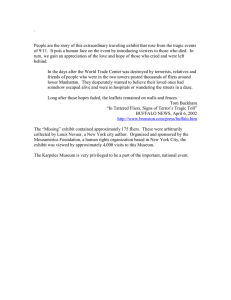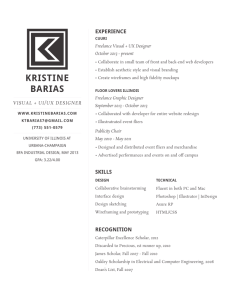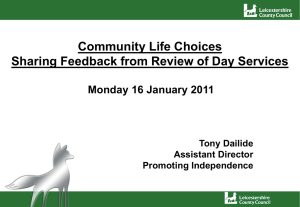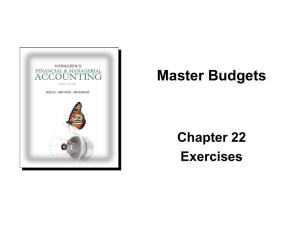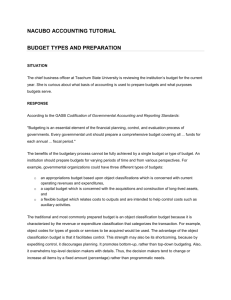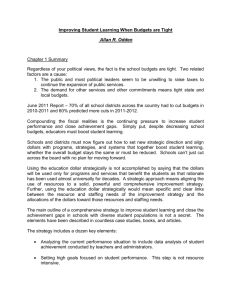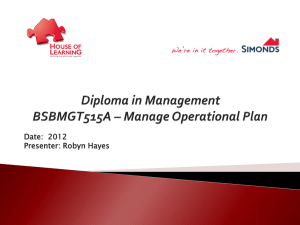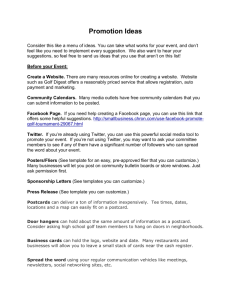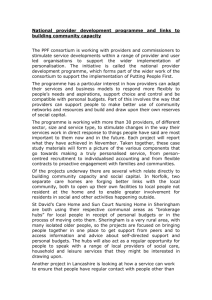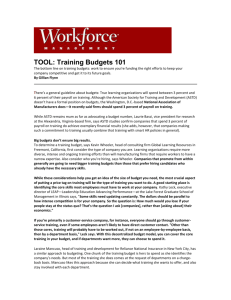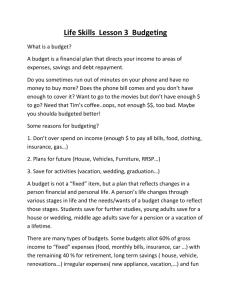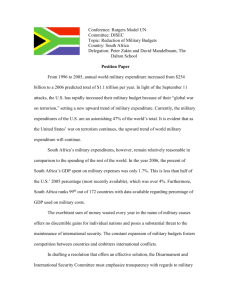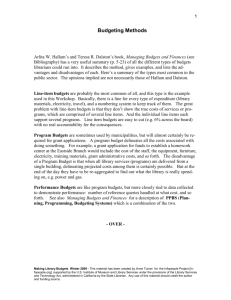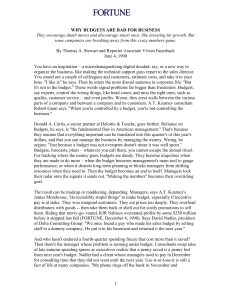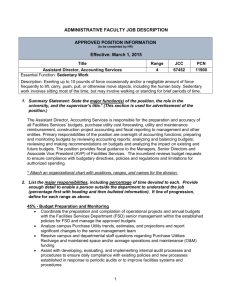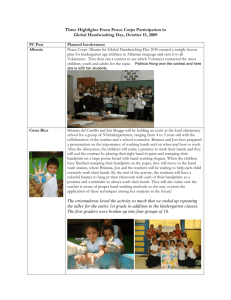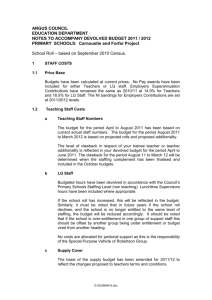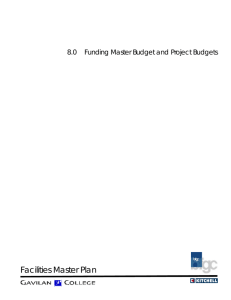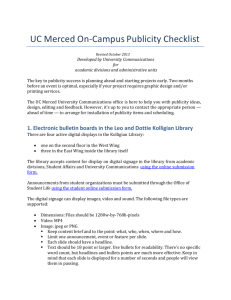GRANT PROPOSAL BUDGET PREPARATION TIPS
advertisement
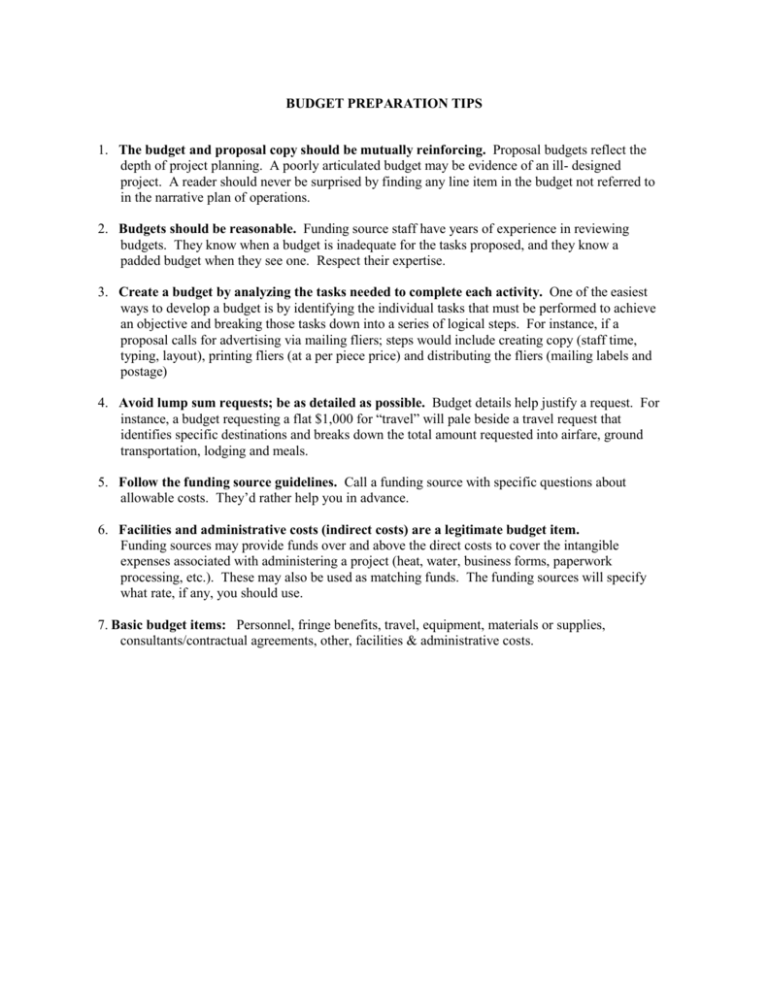
BUDGET PREPARATION TIPS 1. The budget and proposal copy should be mutually reinforcing. Proposal budgets reflect the depth of project planning. A poorly articulated budget may be evidence of an ill- designed project. A reader should never be surprised by finding any line item in the budget not referred to in the narrative plan of operations. 2. Budgets should be reasonable. Funding source staff have years of experience in reviewing budgets. They know when a budget is inadequate for the tasks proposed, and they know a padded budget when they see one. Respect their expertise. 3. Create a budget by analyzing the tasks needed to complete each activity. One of the easiest ways to develop a budget is by identifying the individual tasks that must be performed to achieve an objective and breaking those tasks down into a series of logical steps. For instance, if a proposal calls for advertising via mailing fliers; steps would include creating copy (staff time, typing, layout), printing fliers (at a per piece price) and distributing the fliers (mailing labels and postage) 4. Avoid lump sum requests; be as detailed as possible. Budget details help justify a request. For instance, a budget requesting a flat $1,000 for “travel” will pale beside a travel request that identifies specific destinations and breaks down the total amount requested into airfare, ground transportation, lodging and meals. 5. Follow the funding source guidelines. Call a funding source with specific questions about allowable costs. They’d rather help you in advance. 6. Facilities and administrative costs (indirect costs) are a legitimate budget item. Funding sources may provide funds over and above the direct costs to cover the intangible expenses associated with administering a project (heat, water, business forms, paperwork processing, etc.). These may also be used as matching funds. The funding sources will specify what rate, if any, you should use. 7. Basic budget items: Personnel, fringe benefits, travel, equipment, materials or supplies, consultants/contractual agreements, other, facilities & administrative costs.

